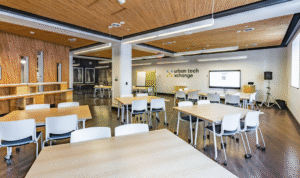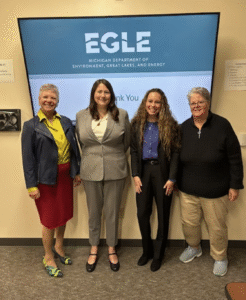
- Kim Kisner
- Business
- 06/20/2022
Recycling, a Green Roof, Beehives for 10,000 Bees, Cedric Turnbore as Director of Operations Has His Vision Set to the Future
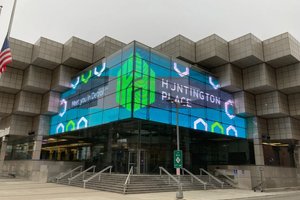
What was Cobo Hall opened its doors as one of the nation’s first mega-conference centers in 1960 and has served as a venue for sports teams, concerts, speakers, and more. In fact, on June 23, 1963, following the Detroit Walk to Freedom civil rights march, Martin Luther King Jr. delivered the original version of his “I Have a Dream” speech at Cobo Arena.
Having under gone a $279 million renovation in 2015, and several name and sponsorship changes since, Huntington Place Convention Center now features a 30,000-square-foot, three-story glass atrium overlooking the Detroit riverfront, the largest ballroom in Michigan at 40,000 square feet, and 723,000 square feet of exhibit space. That’s a lot of space to maintain, and sustain.
The facility also is the largest and only convention center in the world certified under LEED v4.1 Operations and Maintenance (O+M), as well as Michigan’s largest certified green LEED Building.
The facility contributes 9.8 tons of unserved food to Forgotten Harvest and sends 66 tons of compost annually to Hammond Farms and also has 110 recycle bins, 10,000 square feet of green roof, five beehives that retain 10,000 bees, and numerous awards for its green efforts.
How did it get here, and what can other businesses and nonprofits glean from their work in this area?
Cedric Turnbore, director of operations and chair of the Huntington Place Green Committee, shares his insights on where to begin when approaching a sustainability program, the why behind it, and some examples of initiatives Huntington has put into place to date.
WHERE SHOULD A BUSINESS START?
#1: Form a Committee
“In 2011, we developed the Green Team, a committee that includes one person from each department in the office building,” Turnbore says. “We meet regularly to review programs and goals.”
The center also has a 5-person executive board established by the state of Michigan to oversee its sustainability efforts.
“The board acts as our governing body that oversees and approves our programs. We work closely with them to set and manage budgets and ensure that initiatives are in the best interest of the facility, the employees, our guests, and the city.”
#2: Set Attainable Goals
“Start with the low-hanging fruit,” Turnbore said. “Things you can achieve in the near-term that will help to gain traction for the long haul.”
Initial goals of the Green Committee in 2011 included growing the committee with representation from each department and vendor partner and organizing operations around the Green Venues Michigan certification.
Since the United Nations set for 17 Sustainable Development Goals in 2015, Huntington Place has patterned its work around them.
When the TCF Center Green Committee reconvened in September 2021 after a COVID-related hiatus, those goals were front and center.
“This will be pivotal year for our sustainability program,” Karen Totaro, general manager TCF Center/ASM Global, said at the time.
Our work in the center is to contribute to the United Nations Sustainable Development Goals and re-certify as the largest LEED venue in Michigan will be front and center for our efforts in 2022.
Turnbore said so far the center has been able to implement projects contributing toward 13 of the 17 goals, and the work will continue.
#3: It Takes Green to Go Green
“Businesses must commit to funding for the necessary equipment, tools, and programming,” says Turnbore. “That’s why we have a board … to govern and approve our spends and ensure that those spends have the desired outcome – a return on the investment.”
Some examples of investments Huntington Place has made include 110 recycling stations, food court waste diversion receptacles, visitor education posters, a green roof, receptacles for compost collection, trash compactors, a cardboard baler, and a green website page for visitor information.
#4: It’s a Marathon, Not a Sprint
“When we first launched our efforts 11 years ago, many individuals thought it was a fad. That the sustainability work would ‘go away. You need to have a long-term plan to ensure that it never goes away and be steadfast in your efforts every single day. It’s as simple as that,” says Turnbore.
#5: Educate!
According to Turnbore, for their efforts to be impactful, it’s imperative to continually educate employees, vendors, and visitors on the how and the why behind them.
To that end, every new employee is trained on conservation and sustainability during onboarding. Information is posted throughout the facility. The sales and events team with vendors toward making every event as green as possible. Vendors are offered a post-event sustainability report outlining diversion data, compost data, and best practices observed during the event.
Further, the team tours sustainability partner facilities to observe first-hand how their efforts are working. The committee recently toured Hammond Farms in East Lansing, which composts more than 66 tons of unused food from Huntington Place events annually.
WHAT EXAMPLES DOES HUNTINGTON PLACE HAVE IN PLACE?
According to Turnbore, Huntington Place’s four biggest priorities are waste diversion, energy savings, food waste management, and employee education.
Here are just some of the green initiatives currently in place:
- Sitting off the Detroit River, Huntington Place HVAC system pumps gray water from the Detroit River through chillers that then send the cool water to various air handlers, providing cooling to zoned areas in the center. This system uses considerably less electricity than conventional air conditioning units.
- The Huntington Place $279 million facility upgrade incorporates numerous green building components including low-flow restroom and kitchen equipment, energy-efficient HVAC equipment, and a living green roof.
- Centerplate, the Huntington Place food and beverage provider collects prepared food that has not been served for pick up by Forgotten Harvest, a local nonprofit that delivers the food to pantries, soup kitchens, and shelters throughout Southeastern Michigan.
- Materials left by events are donated to local agencies for reuse and upcycling.
- Exhibit halls are equipped with induction lighting that uses 50% less electricity.
- All main hall lighting and heat/cool settings are computer programmed and managed.
- Escalators in the building are energy efficient, Kone EcoMod units. Escalators operate based on occupancy and event needs.
- All in-house contractors participate in center recycling and green initiatives.
- The Huntington Place housekeeping staff uses products that are environmentally safe and nontoxic.
WHY?
When asked what drives Turnbore and the team he says simply, “It’s about bettering the workplace and ensuring that we are working together todo our part to preserve the future.”
It’s also about collaboration. To that end, Huntington partners with other businesses and nonprofits to assist in launching their green initiatives. Currently, they are working with the Detroit Institute of Arts.
Other local agencies the center has partnered with to receive materials to reuse and upcycle can be found here.
WHAT’S NEXT?
The team has set a goal to achieve LEED Platinum Certification. Turnbore says, “We are putting our foot on the pedal to re-certify in the next year or so and it’s ambitious.”
“In the end, it’s about spreading the efforts,” Turnbore says. “Employees here take these practices out into the community with them, into their homes and the places they visit. Sustainability spreads in this way, and that’s a terrific thing.”
Be sure to subscribe to our newsletter for regular updates on sustainable business practices in and around Detroit.
Kim Kisner
- All
- Business
- Community
- Education
- Events

Citizen Robotics is a Detroit-based nonprofit that advances the use of robotics and digital manufacturing in residential construction, focusing on improving productivity, sustainability, and long-term affordability. Best known for its early work in 3D-printed housing, it explores how alternative construction methods and new financial models can reduce material waste, lower lifetime operating costs, and enhance the resilience of homes. SBN Detroit interviewed Tom Woodman, founder and president of...
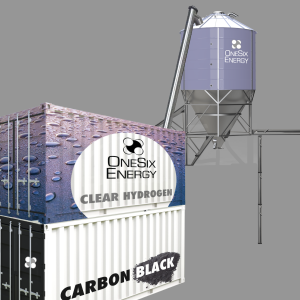
Detroit-based OneSix Energy is a clean-energy technology company focused on advancing a lower-carbon approach to hydrogen production. Headquartered at Newlab in Detroit, the startup is developing a proprietary methane pyrolysis system designed to produce hydrogen without carbon dioxide emissions, while also generating solid carbon as a co-product. SBN Detroit interviewed with cofounder Stefan Sysko about the company’s origins, its approach to hydrogen production, and why Detroit is positioned...
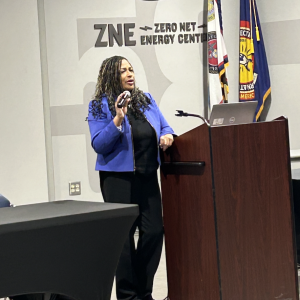
Regina Strong serves as Michigan’s first Environmental Justice Public Advocate, leading the state’s Office of the Environmental Justice Public Advocate. Her role focuses on addressing environmental justice concerns raised by communities, helping residents navigate environmental systems, and working across state agencies to improve equity in environmental decision-making. SBN Detroit interviewed Strong about the challenges communities are facing across Michigan and what environmental justice work looks like in practice....





